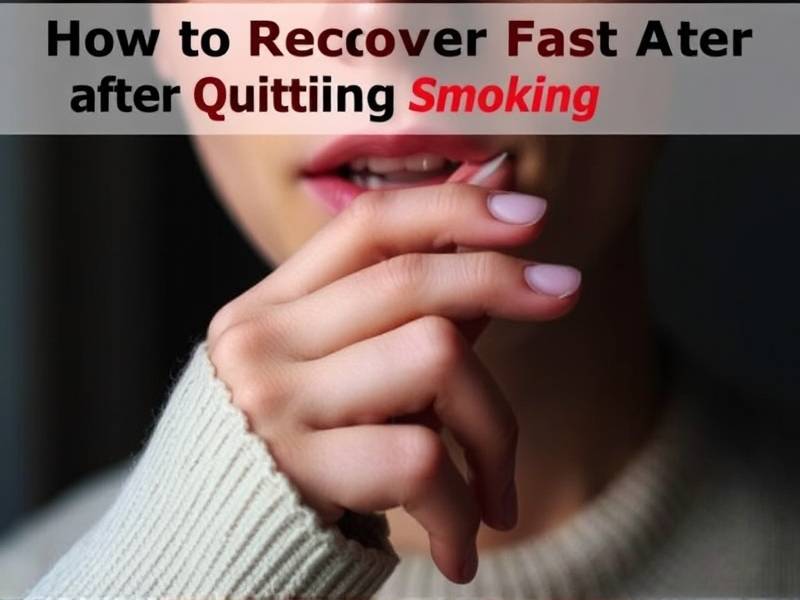How to Recover Fast After Quitting Smoking: Tips and Strategies for a Smooth Transition
The Challenge of Quitting Smoking
Quitting smoking is a challenging endeavor, but it's also a life-changing decision. Whether you're trying to improve your health, save money, or set a positive example for others, the journey can be tough. However, with the right strategies and mindset, you can recover fast and make the transition smoother than you might think.
Understanding Nicotine Withdrawal
One of the biggest hurdles in quitting smoking is dealing with nicotine withdrawal. Nicotine is highly addictive, and when you stop using it, your body goes through a period of adjustment. It's important to understand this process to effectively manage your recovery.
Symptoms of Withdrawal
Common symptoms include:

- Cravings
- Irritability
- Anxiety
- Sleep disturbances
- Decreased concentration
- Increased appetite
How Long Does Withdrawal Last?
Withdrawal symptoms typically peak within the first few days after quitting and can last up to several weeks. However, most people find that their symptoms diminish significantly after about two weeks.
Strategies for Fast Recovery
To recover quickly after quitting smoking, it's essential to adopt effective strategies that address both physical and psychological aspects of withdrawal.
1. Seek Professional Support
Professional support can be invaluable in your quit journey. Consider seeking help from:
- A healthcare provider who specializes in addiction treatment.
- A counselor or therapist experienced in smoking cessation.
- A support group where you can share experiences and advice with others who are going through similar challenges.
2. Create a Quit Plan
Developing a personalized quit plan can help you stay focused and motivated. Your plan should include:
- A quit date: Choose a date that gives you enough time to prepare but not too far in the future.
- Strategies for managing cravings: Identify activities or coping mechanisms that work well for you.
- Rewards for milestones: Set small goals and reward yourself when you achieve them.
3. Adopt Healthy Habits
Healthy habits can help ease withdrawal symptoms and improve your overall well-being:
- Exercise regularly: Physical activity can boost your mood and reduce stress.
- Eat balanced meals: A nutritious diet provides energy and helps maintain healthy blood sugar levels.
- Get enough sleep: Quality sleep supports recovery by reducing stress hormones.
4. Utilize Over-the-counter Products
Over-the-counter (OTC) aids such as nicotine replacement therapy (NRT) patches, gum, lozenges, or inhalers can provide temporary relief from cravings:
- NRTs deliver controlled amounts of nicotine to help reduce withdrawal symptoms without the harmful effects of smoking.
5. Stay Hydrated
Drinking plenty of water helps flush out toxins from your body and keeps you hydrated throughout the recovery process.
Coping with Cravings
Cravings are an inevitable part of quitting smoking but don't have to be overwhelming:
Techniques for Managing Cravings:
- Distraction: Engage in activities that keep your mind occupied when cravings hit.
- Deep Breathing: Practice deep breathing exercises to calm yourself down during intense cravings.
- Mindfulness: Practice mindfulness meditation or yoga to focus on your thoughts and reduce stress-related cravings.
Conclusion
Recovering fast after quitting smoking requires patience, determination, and effective strategies tailored to your needs. By seeking professional support, creating a quit plan, adopting healthy habits, utilizing OTC products like NRTs, staying hydrated, managing cravings with distraction techniques like deep breathing or mindfulness meditation—and most importantly—staying committed—you'll be well on your way to a smoke-free life with minimal discomfort along the way!

